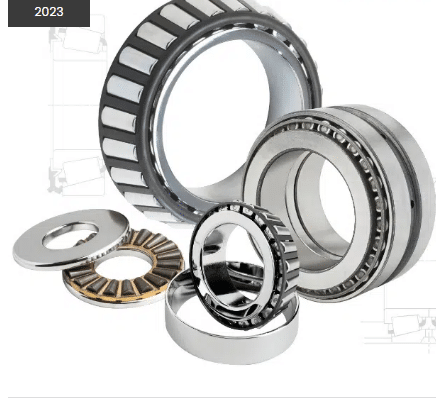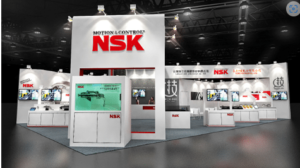
Self-lubricating characteristics are a crucial aspect of bearings, especially in applications where continuous and reliable lubrication is challenging. NSK and FAG, two renowned bearing manufacturers, are known for producing high-quality bearings with exceptional self-lubricating properties. In this comprehensive comparison, we will explore the self-lubricating characteristics of NSK and FAG bearings, emphasizing their unique capabilities and applications across various industries.
Understanding Self-Lubricating Characteristics in Bearings:
Self-lubricating characteristics in bearings refer to the bearings’ ability to maintain adequate lubrication without external grease or oil sources. These bearings are designed to reduce maintenance requirements, extend service life, and ensure reliable operation in applications with limited access to lubrication.
NSK is celebrated for manufacturing bearings with exceptional self-lubricating characteristics, offering reliable performance in a wide range of applications. Here is an overview of NSK’s self-lubricating performance:
Solid Lubricants: NSK employs solid lubricants, such as graphite or molybdenum disulfide, in their bearings to provide continuous and consistent lubrication, even in environments with limited access to grease or oil.
Maintenance-Free Design: NSK’s self-lubricating bearings are often designed to be maintenance-free, reducing downtime and maintenance costs.
High Load Capacity: NSK’s self-lubricating bearings can handle high loads while maintaining effective self-lubrication, making them suitable for heavy-duty applications.
Food and Pharmaceutical Industries: NSK’s self-lubricating bearings find applications in industries where external lubrication is restricted, such as the food and pharmaceutical sectors.
Automated Machinery: Self-lubricating NSK bearings are favored in automated machinery, where continuous, maintenance-free operation is essential.
FAG, another leading bearing manufacturer, is recognized for producing bearings with outstanding self-lubricating properties. Here are key aspects of FAG’s self-lubricating performance:
Innovative Lubricant Compositions: FAG designs innovative lubricant compositions for their self-lubricating bearings, ensuring consistent and reliable lubrication without external grease or oil.
Long Service Life: FAG’s self-lubricating bearings are engineered for extended service life, reducing the need for frequent replacements or maintenance.
Versatile Applications: FAG’s self-lubricating bearings are suitable for a wide range of applications, from heavy industrial machinery to precision instruments.
Agriculture and Construction: FAG self-lubricating bearings are commonly used in agriculture and construction equipment, where regular maintenance is often challenging.
Low Friction Coefficients: FAG’s self-lubricating bearings have low friction coefficients, reducing energy consumption and heat generation.
Conclusion:
Both NSK and FAG bearings excel in self-lubricating characteristics, offering reliable and maintenance-free performance in challenging applications. The choice between them should be based on the specific self-lubricating requirements of the application and industry. In industries where regular maintenance is difficult, or where access to external lubrication is limited, self-lubricating bearings play a pivotal role in ensuring uninterrupted and efficient machinery operation. Selecting the right self-lubricating bearings is essential for enhancing reliability and reducing maintenance costs in these demanding environments.
We support more information about Bearings. you can visit https://cmtgbearing.com. or email us info@cmtgbearing.com.


